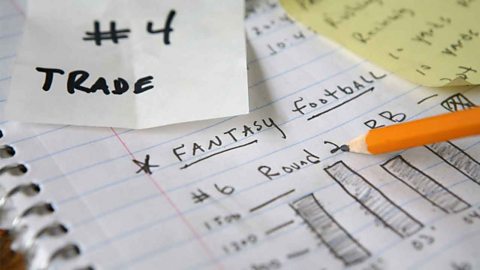"Ronnie Whelan and Burrows,
"Venison and Barnesy, go.
"Grobbelaar and Nicol, Steve,
"Theyre the ones who made the fans believe"
OK, so itÔÇÖs not a chant that ever filled the Anfield terraces, but it does (sort-of) fit the spoken word section of MadonnaÔÇÖs Vogue. Which is appropriate when you consider that the queen of popÔÇÖs dancefloor anthem was top of the UK charts on 28 April 1990. That was the day Liverpool Football Club last clinched EnglandÔÇÖs top flight title.
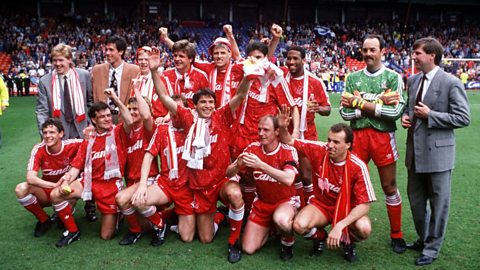
ItÔÇÖs taken just over 30 years for Jurgen KloppÔÇÖs Class of 2020 to send the Premier League title to Anfield. Virgil Van Dijk, Jordan Henderson, Mohamed Salah, Roberto Firmino, Sadio Man├® and the rest of the squad have finally emulated the success of Ronnie Whelan, John Barnes, Alan Hansen, Steve Nicol, Bruce Grobbelaar and Kenny DalglishÔÇÖs other Reds stars of the 1989/90 season.
In the months before lockdown due to Covid-19, the talk was of the the Reds confirming themselves title winners earlier than any other team in the leagueÔÇÖs history. TheyÔÇÖve since become the latest, after the seasonÔÇÖs three-month hiatus, although itÔÇÖs not a unique position for Liverpool. The harsh winter during the 1946/47 season led to so many match postponements that the Reds didnÔÇÖt claim their fifth league title until the June of that year too.
On LFCÔÇÖs last league-winning day of the 20th Century, barely anyone had a mobile phone. Margaret Thatcher was still prime minister and the UK was set for one of the most sweltering summers on record. It was at the start of that warm July, for a few days at least, that England seemed capable of replicating their World Cup success of 1966, ending 24 years of hurt. ThereÔÇÖs been 54 of those painful years now, but hope continues to spring eternal for England and their fans. And hope played its part in other headlines of the time too.
Walls come tumbling down
Old regimes which didnÔÇÖt perhaps fit with a world anticipating a bright new millennium had either fallen or were showing signs of strain by 1990.
The Berlin Wall had fallen in 1989. A physical and symbolic divide between east and west in the German capital, it stood for 28 years. The west side of Berlin was viewed as too capitalist by the East German communist government, who were concerned about citizens leaving the east for different opportunities in the west. When the wall appeared in 1961, some families were cut off from each other for decades as crossing the barrier at its various checkpoints was rarely allowed.The end of the Cold War saw the situation change and east and west Berliners were allowed to roam freely around all of their city once more. East and West Germany reunified as a single nation in October 1990.
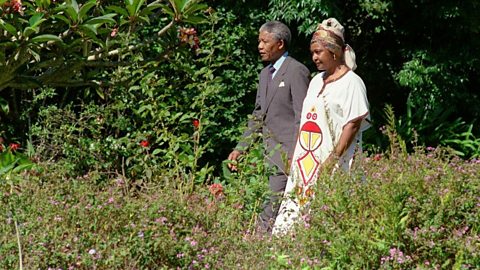
The world was starting to feel a little more free. In May, Latvia declared independence from the Soviet Union. In another historic milestone, Nelson Mandela, the future president of South Africa, was released from jail in February 1990 after serving 27 years. It was a move by the countryÔÇÖs then-president, FW de Klerk, to end the apartheid which had divided the country on racial grounds since 1948. Mandela had been sent to jail for campaigning to overthrow that very regime, one which was also opposed by other nations. Apartheid finally came to an end when a new constitution took effect in 1994. By the time LFC lifted the league trophy again in 2020, South Africa was on a more democratic footing with the rest of the world. The country even has a successful World Cup hosting under its belt. Remember the vuvuzelas?
On home turf
In the weeks leading up to Liverpool securing the title in a 2-1 victory against Queens Park Rangers at Anfield, the UK had its share of headline-generating incidents.
Just three days before the Division One title was decided, a riot at ManchesterÔÇÖs Strangeways Prison came to an end.
Prisoners took to the roof to protest at conditions, including overcrowding, with one man announcing on a loudspeaker, ÔÇ£We are not animals, we are human beings.ÔÇØ The riot, which became a siege, lasted 25 days. Two people died and Strangeways was so badly damaged it had to be rebuilt at a cost of ┬ú55m. A later inquiry did rule that overcrowding was an issue in the UKÔÇÖs prisons and measures were put in place to prevent it in future, including a rebuilding programme. Strangeways is now known as HMP Manchester.
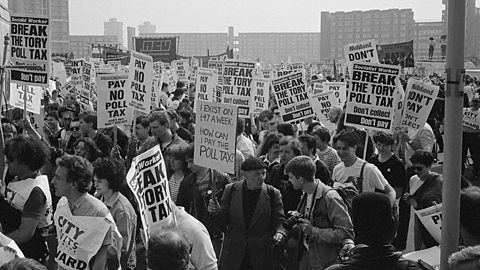
It wasnÔÇÖt the only unrest in early 1990. On 31 March, there were riots in London over the poll tax, a household bill introduced by Margaret ThatcherÔÇÖs Conservative government. Intended to fund local government, it was not popular and played a part in the prime ministerÔÇÖs resignation in November, after 11 years in office. At this point, Labour - led by Neil Kinnock - had surged ahead of the Conservative Party in the opinion polls but it was still ThatcherÔÇÖs successor, John Major, who would lead the Tories to a fourth successive general election victory in 1992.
On the ball
One of the major global sporting events of 1990 was the World Cup, held in Italy for the second time, the first coming in 1934. John Barnes, Peter Beardsley and Steve McMahon were the players from the LFC squad to make the England team, managed by Bobby Robson. Another Red, Gary Gillespie, turned out for Scotland, who went out in the first round, while Ronnie Whelan, Steve Staunton and Ray Houghton were in Ireland's squad. The Irish team were in the World Cup for the first time and had a fantastic tournament, making it to the quarter finals where they were knocked out by the hosts.
The Three Lions had their most successful tournament since hosting - and winning - in 1966. They faced West Germany (still playing under the pre-unification name), the country they beat 24 years earlier, in the semi-finals on 4 July in Turin. England didnÔÇÖt disgrace themselves but ultimately lost out to the eventual tournament winners on a penalty shootout after extra time. Hosts Italy then beat England in the third-place play-off in what was a great year for them on the international stage; organising the World Cup and winning the Eurovision Song Contest. On the subject of anthems, John BarnesÔÇÖ rap contribution to World in Motion, EnglandÔÇÖs official song for the tournament, helmed by New Order and a summer number one hit, is still requested by fans today.
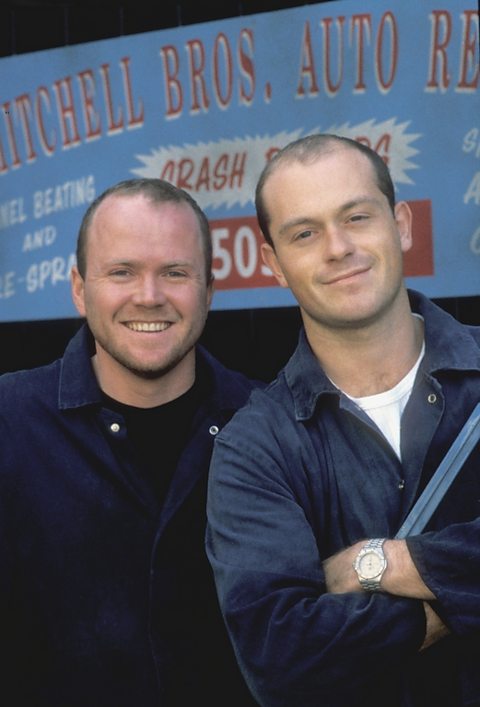
Small screen and sun screen
Pingu, Teenage Mutant Hero Turtles, Mr Bean, Phil and Grant Mitchell. All legendary characters who first appeared on UK screens in 1990. It was a good year to be a telly fan, as staying in during the summer months became a good way to avoid sunburn.
On 3 August, the highest temperature ever recorded in the UK - a whopping 37C (99F) - was listed at a weather station in Leicestershire. The blistering summer saw penguins at Bristol Zoo requiring daily cold showers from hoses to prevent them dehydrating and the motorways approaching coastal towns becoming gridlocked.
The record would be broken in 2003 when temperatures above 38C (100F) were recorded in Kent but the summer of 1990 was a scorching one. If your beach disco included the aforementioned Vogue, the DJÔÇÖs setlist of 1990 number ones was also likely to contain AdamskiÔÇÖs Killer, featuring an early chart appearance by Seal, The Power by Snap! and even BombalurinaÔÇÖs Itsy Bitsy Teenie Weenie Yellow Polka Dot Bikini. The latter, originally recorded by US artist Brian Hyland in 1960, was performed by childrenÔÇÖs TV presenter Timmy Mallett and produced by musical theatre impresario Andrew Lloyd Webber. For the slowie at the end, Sinead OÔÇÖConnorÔÇÖs Nothing Compares 2 U was a shoe-in.
John Barnes excepted, there was no other LFC contribution to the charts that year. There was only one number one slot they had in mind, and few would perhaps believe it would be 30 years before they were back there again. But for now at least, the lads from Anfield are back in vogue.

Football for all: A look at different types of football by the people that play them
Three England stars with different disabilities give us an insight into different types of football and how the game has had an impact on them.
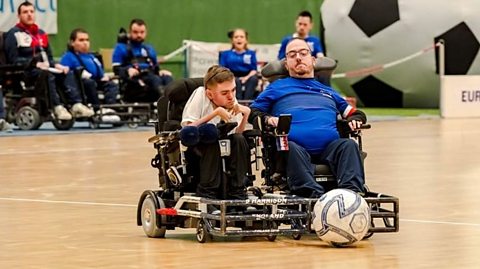
The origins of football jargon
From hat-trick to volley, learn where some of the most popular football lingo comes from.
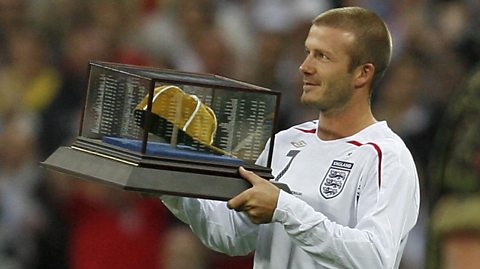
'How maths scored me a job in fantasy football'
An interview with Holly ÔÇô maths teacher, mum-of-one and fantasy football influencer.
